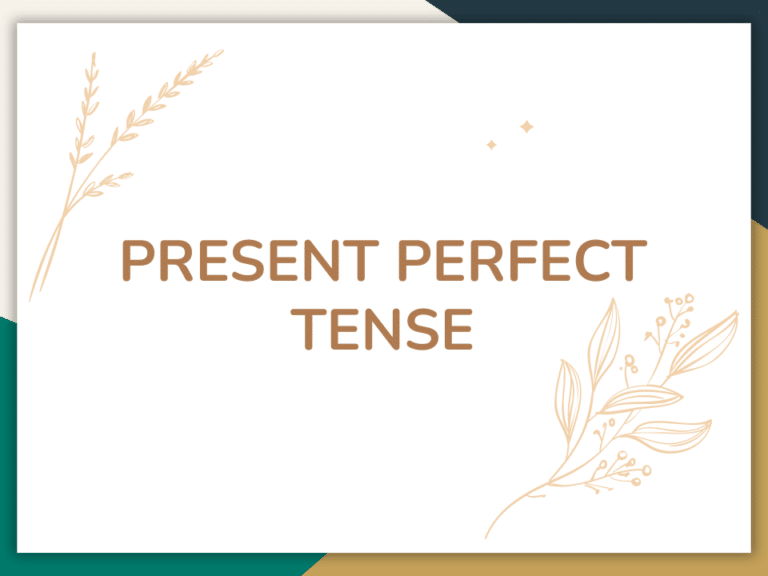
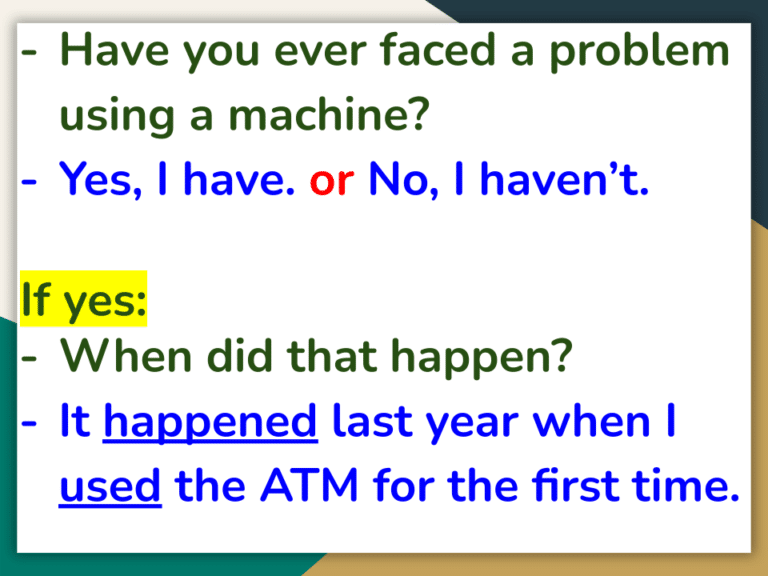
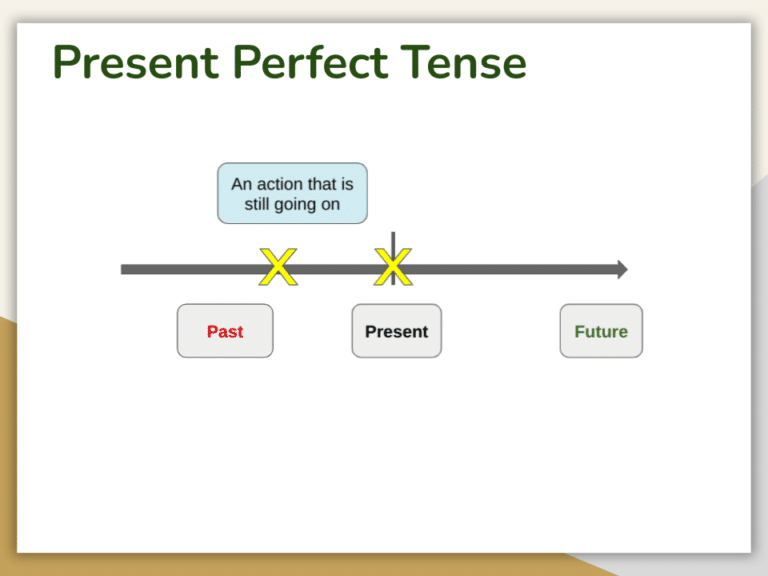
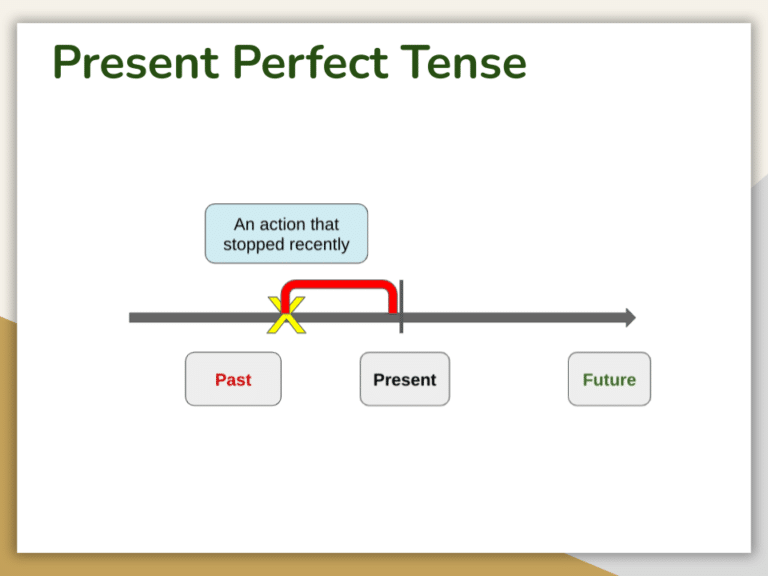
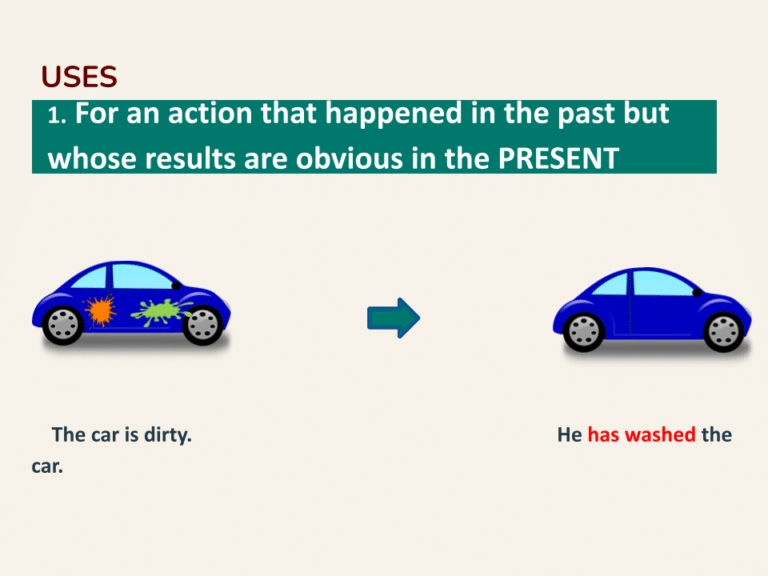
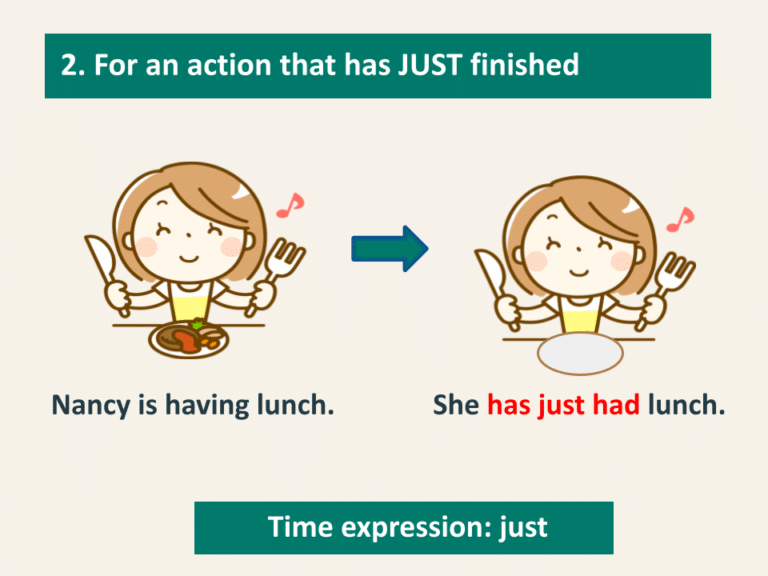
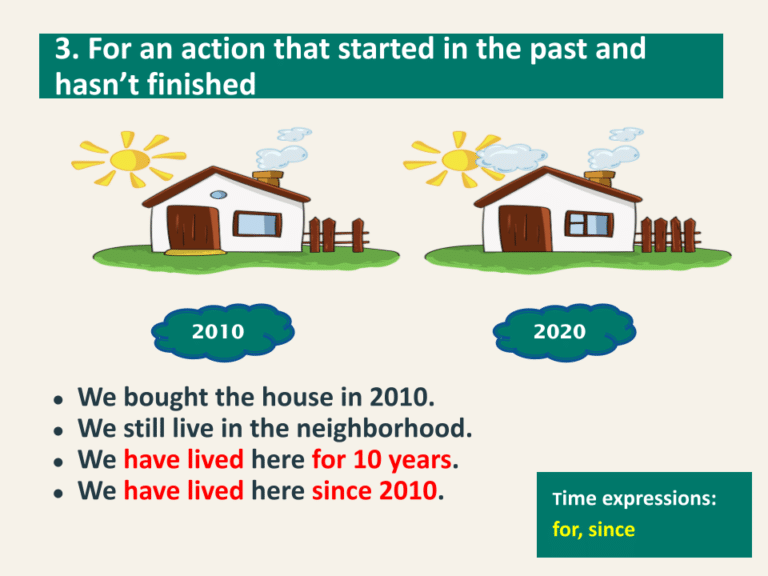
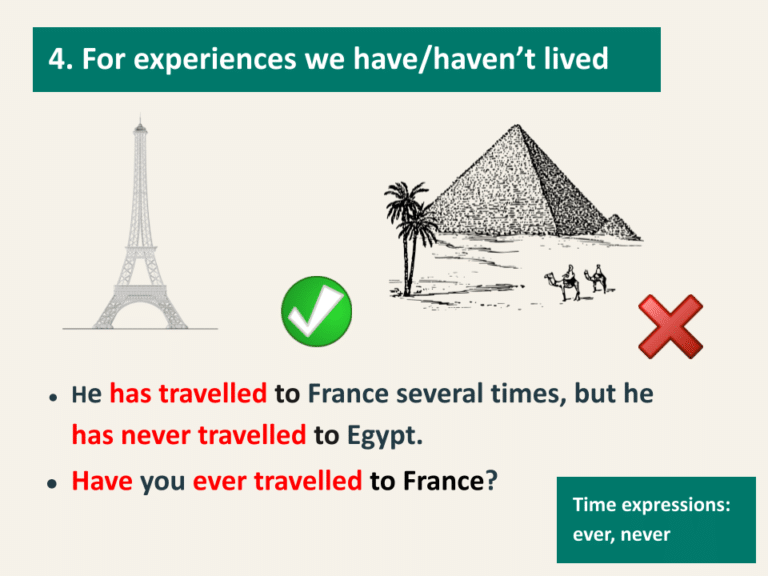
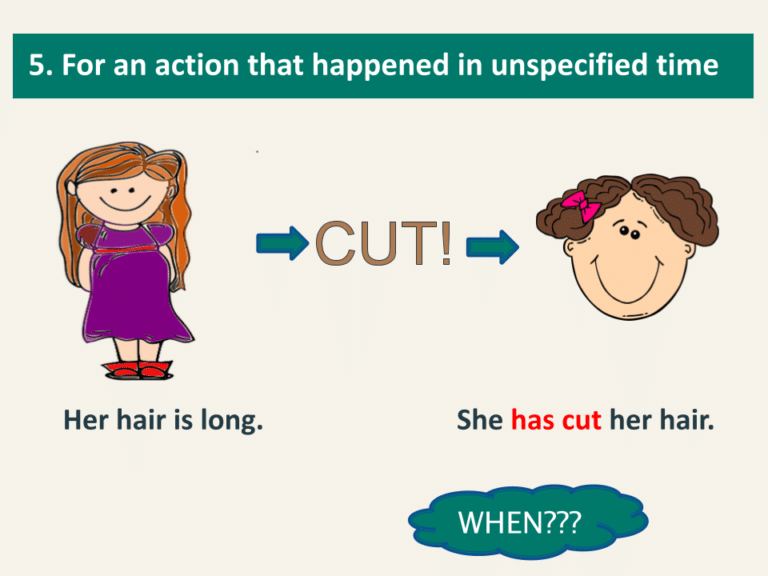
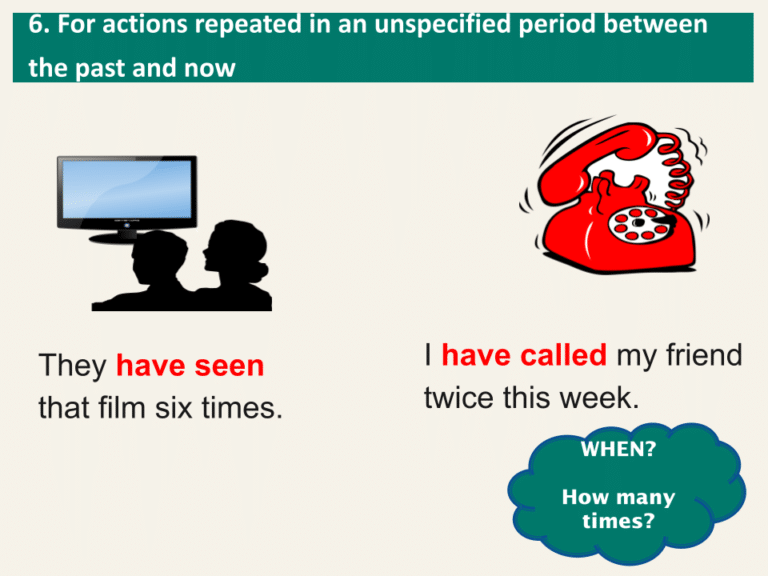

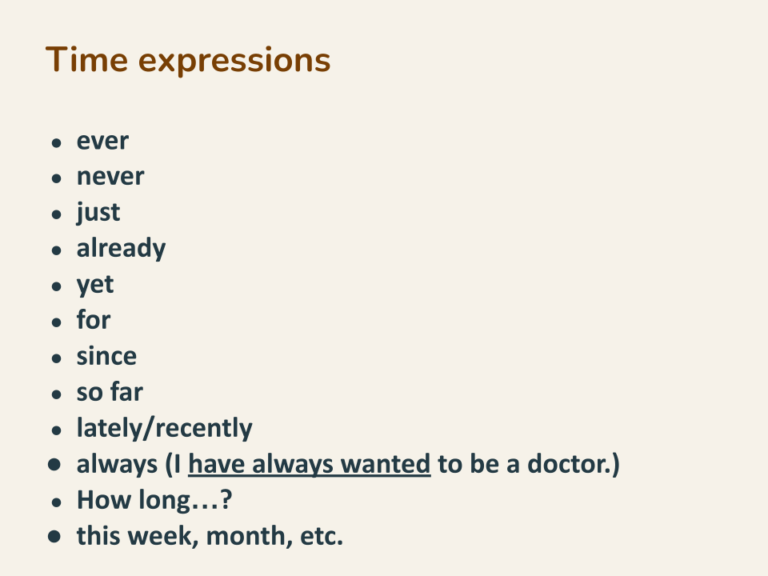
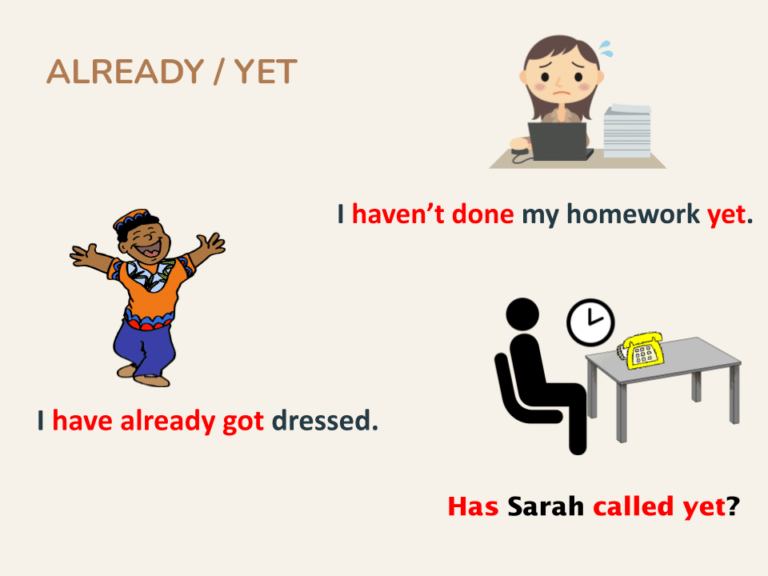
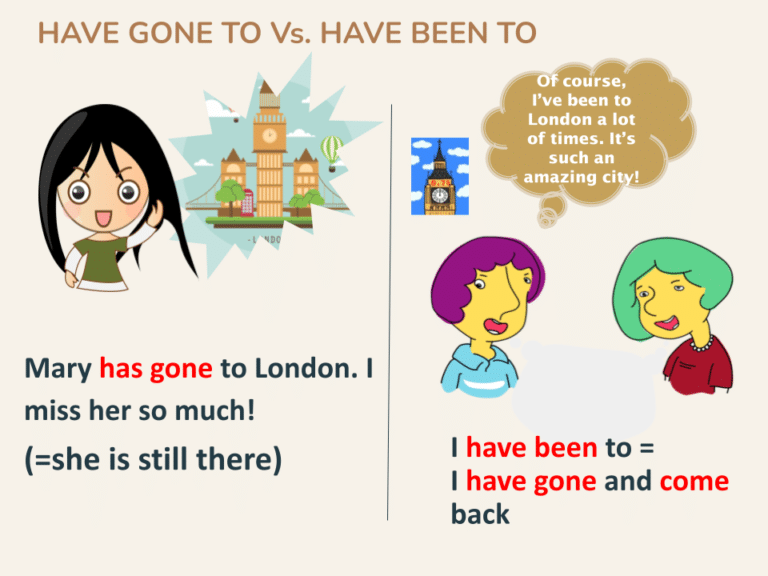
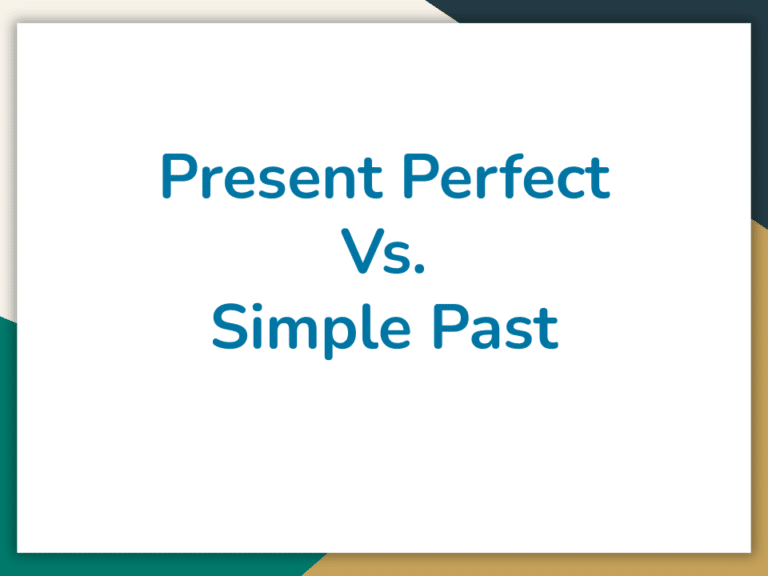
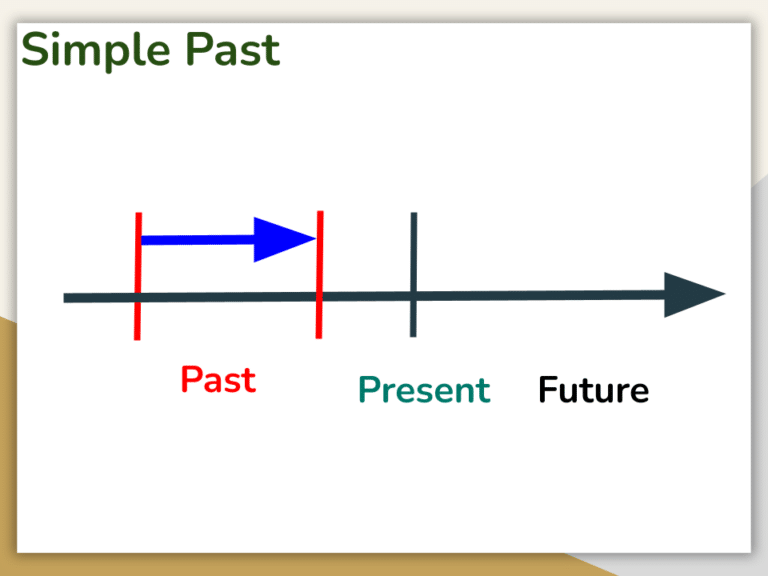
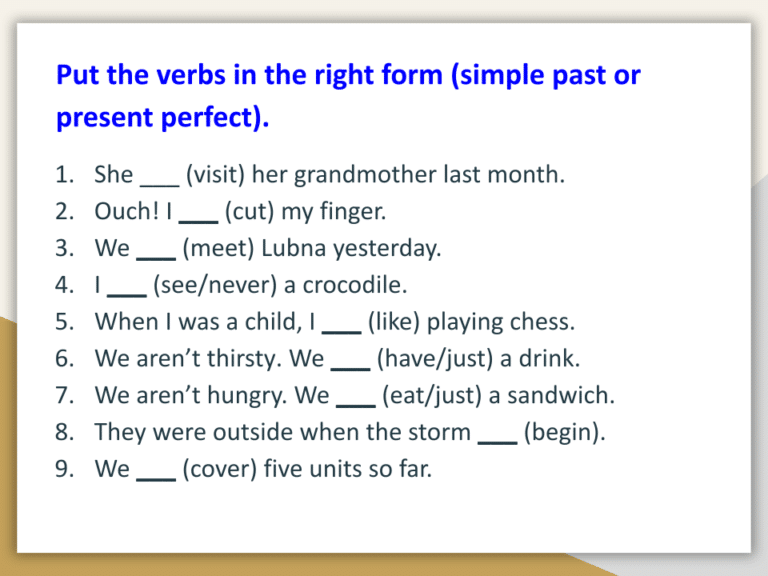
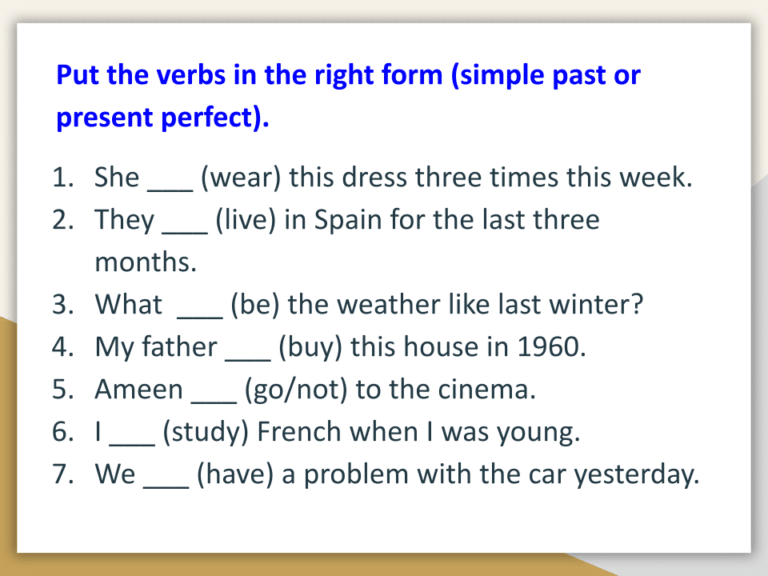
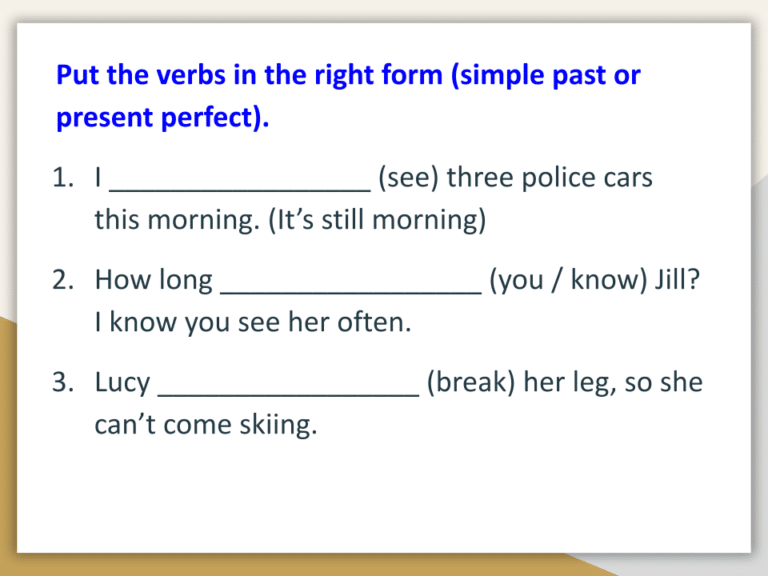
Download this presentation and make your own copy here!
Table of Contents
Introduction:
The present perfect tense is used to describe actions that started in the past, but still have effect on the present.
The focus in the present perfect tense is the result of the action.
Generally, the time at which the action started (or stopped) is not important.
Every sentence in this tense has a verb to have as an auxiliary verb in addition to a past participle form of the main verb.
Let’s have a look at the different forms of sentences in the present perfect.
Forms
Affirmative Sentences
Subject + have or has + past participle verb (verb 3)
- I have sent invitation emails.
- They have completed the task.
- She has run out of money.
Negative Sentences
Subject + have or has + not + past participle verb (verb 3)
- I have not explained my point of view yet.
- We haven’t contacted the guests speaker yet.
- The boy has not finished his food yet.
Questions
Have or Has + subject + past participle verb (verb 3) …?
- Have you called the doctor?
- Have they checked the employee lists?
- Has your mother arrived?
(Check a list of regular and irregular verbs here.)
Uses
Present Perfect verbs are used to describe the following:
Finished actions, seen results
We use the present perfect tense to describe actions that happened and finished in the past but their results are still obvious in the present.
The time when they actions happened is not important. The focus here is on the result.
Examples:
- He has washed the car. It looks gorgeous now.
- The children have cleaned up their room.
- My mother has baked a fruit cake. The smell is so good.
- Somebody has eaten my pizza.
Recently finished actions
Present perfect verbs also describe actions that have just finished.
The adverb just is used with the verb.
Examples:
- She has just had her lunch. She needs to brush her teeth.
- The students have just finished their test.
- I have just arrived home. I’m going to check on the children.
- Terry feels tired. He has just completed the project.
Unfinished actions
These actions usually take a long time. They started in the past but have not finished yet.
Examples:
- We have lived in this house for 10 years.
- She has worked for this company since 2018.
- They have stayed at this hotel for four days.
- I have known my best friend since I was fourteen.
Life experiences
Experiences that we have or have not lived can be expressed by the present perfect tense.
The adverbs never, ever, already, and yet can be used here.
We ask about life experiences with Have you ever …?
Examples:
- I have never climbed a mountain.
- Have you ever driven an electric car?
- They have tried sushi at this restaurant.
- We haven’t played squash.
Repeated actions
In addition, present perfect verbs are used to describe actions repeated a number of times between the past and the present, and they may happen again.
Examples:
- She has taken a number of language courses.
- My father has published five books so far.
- We have eaten at this restaurant many times.
- The teacher has given us three assignments this month.
Signal words/phrases used with the present perfect
- ever
- never
- just
- already
- yet
- for
- since
- so far
- lately/recently
- always (I have always wanted to be a doctor.)
- How long…?
- this week, month, etc.
⇔ Take a quiz on present perfect tense!

